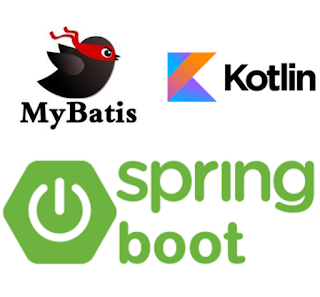Build REST CRUD APIs with Kotlin, Spring Boot and MyBatis

Hello everyone, today we will learn how to develop REST-style CRUD APIs with Spring Boot, Kotlin, MyBatis, and H2 Database. You can download the source code from our Github repository. What is MyBatis? MyBatis is a persistence framework with support for custom SQL, stored procedures and advanced mappings. MyBatis eliminates almost all of the JDBC code and manual setting of parameters and retrieval of results. MyBatis can use simple XML or Annotations for configuration and map primitives, Map interfaces and Java POJOs (Plain Old Java Objects) to database records. Some of the features of MyBatis : In memory object filtering Fortifies clustering and simultaneous access by other applications without loss of transaction integrity Query Caching - Built-in support Fortifies disconnected operations Support for Remoting. Distributed Objects. Technologies used : Spring Boot 2.5.4 Spring 5.3.9 MyBatis Kotlin Gradle After completing this tutorial what we will build? We will build REST API
